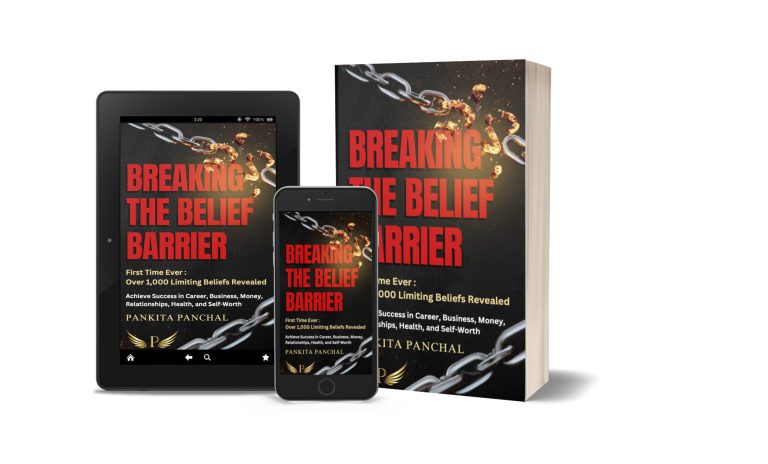Overthinking and Anxiety
Overthinking and Anxiety: The Fast Track to Relief Introduction: Do you often feel overwhelmed by anxiety, trapped in a cycle of overthinking, exhaustion, and emotional paralysis? If you’ve tried to manage it...

Procrastination is a challenge that almost everyone faces at some point. Research suggests that while around 20% of adults identify as chronic procrastinators, nearly 50% of people report procrastinating in some aspect of their lives. Among students, the numbers are even higher, with 80%-95% admitting to regular procrastination.
Procrastination isn’t just about laziness—it’s often tied to deeper fears, limiting beliefs, and even anxiety. Studies suggest that procrastination is closely linked to stress and anxiety, creating a vicious cycle where delaying tasks causes more stress, which then leads to more procrastination. In this blog, we’ll explore why we procrastinate, how stress and anxiety contribute to it, and actionable strategies to help you break free from the habit and start moving forward.
Procrastination often goes beyond simple laziness. Here are a few key reasons why people tend to delay taking action:
Fear of Failure or Success: Sometimes, the fear of failing (or even succeeding) keeps us from starting something new. The possibility of not doing it perfectly can paralyze us.
Perfectionism: The need to do everything perfectly can lead to delaying tasks because we’re afraid of not meeting our own high expectations.
Overwhelm and Anxiety: For many, procrastination isn’t just about being lazy; it’s tied to anxiety. Tasks that seem simple—like opening the mail—can feel overwhelming when anxiety is high, causing us to avoid them. Stress builds up, and tasks pile up, creating a cycle of avoidance and guilt.
Lack of Clarity: When we don’t know where to start or aren’t clear about our goals, procrastination creeps in.
Procrastination not only delays tasks but also amplifies stress and anxiety:
Procrastination often goes hand-in-hand with anxiety. When anxiety is high, even small tasks can feel overwhelming, leading to avoidance:
Breaking the Anxiety-Procrastination Cycle: It’s important to acknowledge that procrastination can stem from the discomfort we feel about completing certain tasks. Anxiety can make us freeze or avoid, but small actions—like breaking tasks into manageable steps—can begin to reduce the anxiety associated with those tasks.
Mindfulness and Stress Management: Practicing mindfulness and learning stress management techniques can help alleviate the anxiety that triggers procrastination. Techniques such as deep breathing, meditation, or journaling can help calm the mind before tackling difficult tasks.
Here are some proven strategies to break the procrastination cycle and take action:
Break It Down: Divide large tasks into smaller, manageable steps. By focusing on one small step at a time, the task will feel less overwhelming.
Set Clear Deadlines: Give yourself firm deadlines, even if they’re self-imposed. Structure can create urgency and keep you on track.
Prioritize: Not everything needs to be done right now. Use a priority matrix to determine which tasks are urgent and important, and focus on those first.
Use the “2-Minute Rule”: If a task will take less than two minutes to complete, do it right away. This can help build momentum for bigger tasks.
Understand Your Triggers: Pay attention to when and why you procrastinate. Are you avoiding a task because of fear or overwhelm? Identify your triggers and address them head-on.
Reward Yourself: After completing a task, reward yourself with something small—a break, a snack, or something you enjoy. This creates a positive feedback loop for taking action.
It’s easy to fall back into old habits, but staying consistent is key to long-term change. Here’s how to maintain your progress:
Accountability: Share your goals with a friend, coach, or partner who can help keep you on track.
Daily Habits: Build small habits into your daily routine that combat procrastination, like planning your day in the morning or reviewing your tasks the night before.
Visualize the Outcome: When you feel tempted to delay, visualize the positive outcome of completing the task. Focus on how good it will feel to have it done.
Take Sarah, for example. She constantly delayed starting her dream project, believing she wasn’t ready and didn’t have the right skills. Procrastination became her default response whenever she faced a challenging task. After working together using NLP techniques, Sarah realized her procrastination stemmed from early experiences in her childhood where she was told she wouldn’t succeed. By reframing this belief and tapping into her inner confidence, she not only began her project but completed it in record time. Today, she’s thriving and no longer held back by her fear of failure or procrastination.
While some people recognize the signs of procrastination, many don’t. Instead, they offer excuses for delaying tasks, thinking they are simply “too busy” or “not ready.” This is a common behavior, and what’s key to understand is that behaviors are often unconscious. They run your life without you even realizing it.
This is why DIY tools or surface-level solutions sometimes fall short. It’s like trying to treat heart disease with only medication when you actually need surgery. Similarly, if you really want to break the procrastination cycle, you need to address it on a subconscious level—and that’s where NLP comes in.
As a Master NLP coach, I’ve seen time and time again how powerful this approach is. In just one session, I can help you break the cycle of procrastination, so you don’t have to wait months or years to overcome it. NLP works at the root level, helping you shift patterns that have held you back for too long.
Overcoming procrastination isn’t about changing who you are—it’s about recognizing the deeper reasons behind it and using simple strategies to shift your behavior. Start small, stay consistent, and watch as you begin to make meaningful progress toward your goals. Remember, the first step is always the hardest, but once you take it, momentum will follow.
If procrastination is holding you back from achieving your full potential, and you’re ready to break free from this cycle, I’d love to support you on this journey. Reach out today to learn more about my coaching programs and how we can work together to turn your goals into action.
Have questions? Email me at [email protected].


Overthinking and Anxiety: The Fast Track to Relief Introduction: Do you often feel overwhelmed by anxiety, trapped in a cycle of overthinking, exhaustion, and emotional paralysis? If you’ve tried to manage it...
Overwhelm and Burnout: How Emotional Healing is the Key to Lasting Productivity Introduction: Do you ever feel like no matter how hard you push yourself, you’re constantly falling behind? Perhaps you’re overwhelmed...
Unlock Clarity: Finding Direction in Life and Business Introduction: Why Clarity and Direction Matter In today’s fast-paced world, many people feel overwhelmed, unsure of their path, and stuck in a constant cycle...
